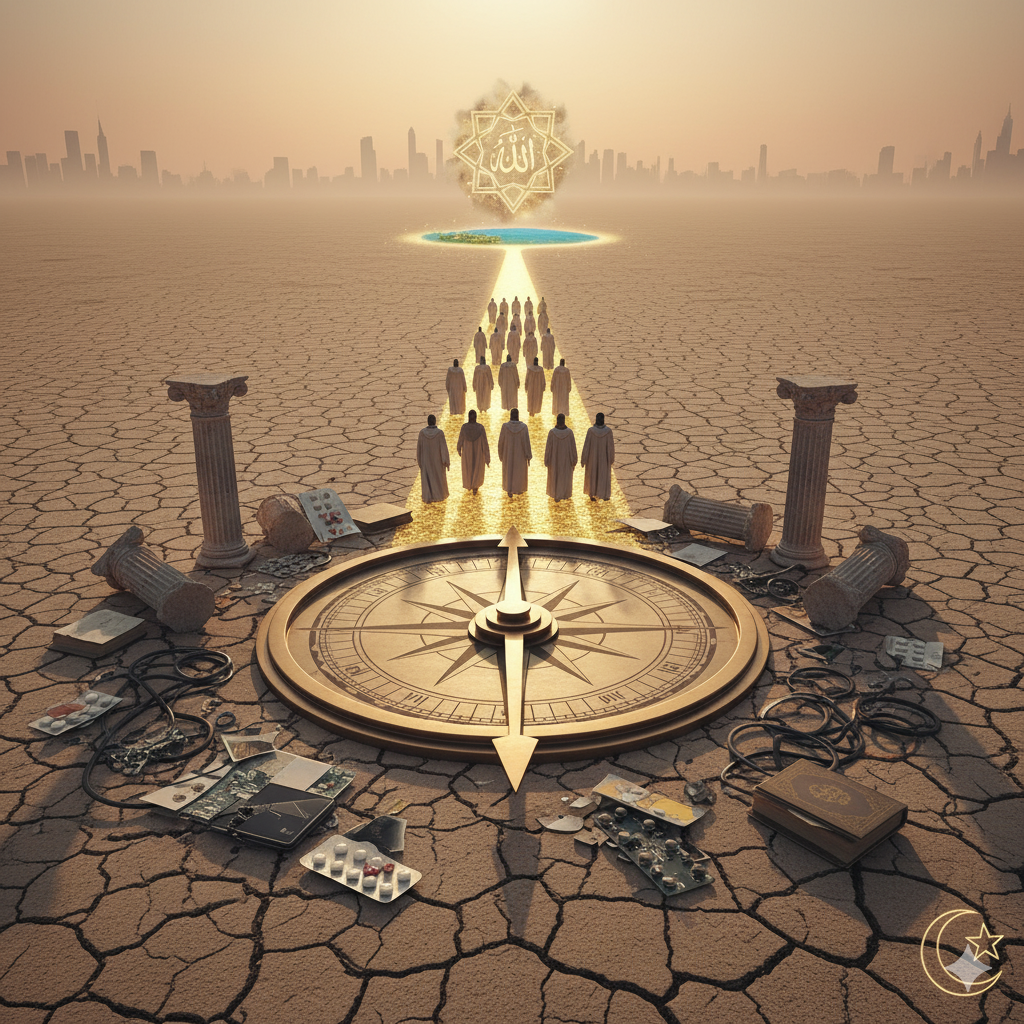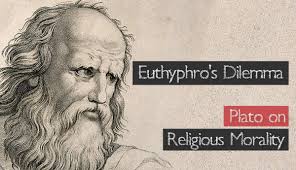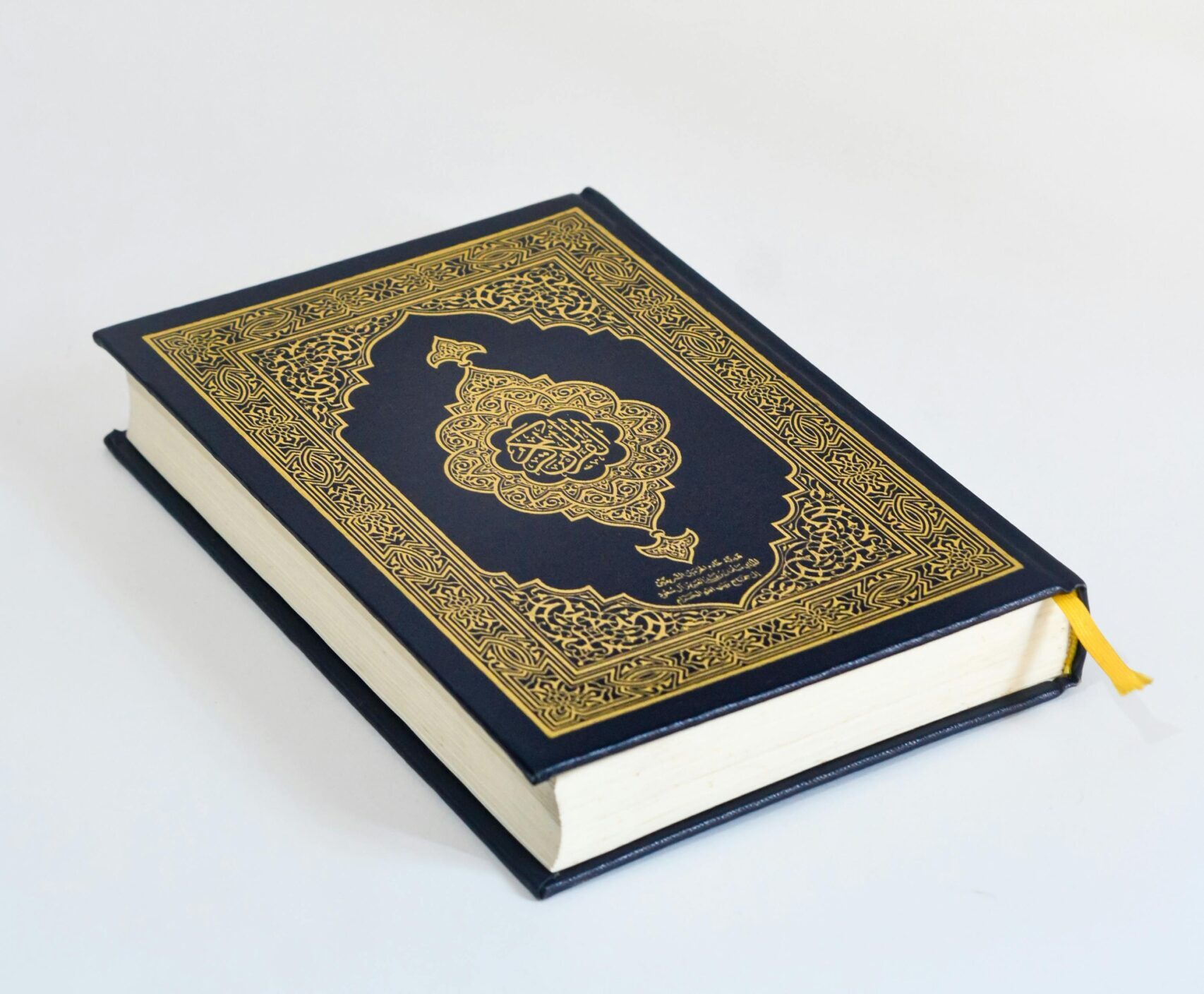Question: What is the proof that the Quran is the word of Allah?
بِسْمِ اللَّهِ الرَّحْمَنِ الرَّحِيم
The proof that the Qur’an is the word of Allah is its extraordinary and miraculous nature. This is known as I‘jaz al-Qur’an and has been covered extensively by the scholars of the Islamic tradition and directly ties into the topic of the proof of Rasulullah’s (s.a.w.) prophethood as the Qur’an is his eternal miracle.
There are multiple facets by which the Qur’an is extraordinary and miraculous. For our purposes, we will provide a brief explanation and example for some of these facets.
1. The Inimitability of the Qur’an
The disbelievers accused the Prophet (s.a.w.) of making up the Qur’an himself. To counter this, Allah Ta’ala challenged them stating, “Do they say that he has fabricated it? Say (to them), “Then bring ten surahs like this, fabricated. And call whomsoever you can, other than Allah, if you are true.” (11:13). This challenge was put forth at a time when there is consensus that the Arabs were at the peak of their literary prowess and they prided themselves over their command of Arabic, yet no one came forth with ten surahs the like of the Qur’an. After some time and after further accusations from their side, Allah Ta’ala challenged them again and made it easier for them, stating, “Or, do they say that he has made it up? Say, “Then, bring a single surah like this, and call whomsoever you can beside Allah, if you are true.” (10:38) The shortest surah of the Qur’an is only three verses, yet this challenge has stood the test of time such that no one for over 1400 years has been able to produce a single surah that can resemble a surah of the Qur’an.
To even be considered a potential imitation of the Qur’an, and thus meet the challenge, a text would have to at the bare minimum incorporate the literary aspects described below.
2. The Literary Miracle of the Qur’an
The style of speech in the Qur’an is completely different from that of the Prophet’s (s.a.w.) speech. If the Prophet (s.a.w.) was compiling the Qur’an himself, there would bound to have been instances wherein his own style of speech sounded like that of the Qur’an. In fact, the power and might found in the style of the Qur’an does not resemble that of any man, but rather invokes divine origin. Moreover, the style of the Qur’an did not resemble any of the styles of speech ever used in Arabic. It did not fit the established meters of Arabic poetry, while on the other hand it was clearly not prose. Despite this unique style, the Qur’an employed the most eloquent rhetorical devices utilized in Arabic for centuries. In fact, due to its unique style, the Arabs who first encountered it thought it to be words of soothsaying, as it did not resemble the speech they commonly heard and used. Furthermore, because of the effect the words of the Qur’an had on the hearts, the Arabs confused it with magic and sorcery before eventually discarding that notion.
3. The Preservation of the Qur’an
The history of the preservation of the Qur’an in written form is marvelous in-of-itself, but the true preservation is the entirely separate and independent oral preservation. This is a result of the promise of Allah Ta’ala: “We, Ourselves, have revealed the Reminder (the Qur’an), and We will certainly preserve it.” (15:9) Each successive generation of Muslims memorized the Qur’an on such a mass scale that the Qur’an which the Prophet (s.a.w.) and the Companions (r.a.) recited is exactly the same as the one we recite today. Furthermore, if anyone were to attempt to alter a single word from a verse, it would immediately be identified and rectified by the scores of huffaz (those who have memorized the Qur’an in its entirety) around the globe. This form of preservation is a unique and extraordinary attribute of our nation, and no religion can claim that their scripture has been perfectly preserved such that no alterations have occurred in it.
4. Instances of Reprimanding and Threatening:
In the Qur’an there are instances in which Allah Ta’ala reprimands the Prophet (s.a.w.) for not adhering to the ideal course of action. If the Qur’an was composed by the Prophet (s.a.w.) himself, it is highly unlikely that he would mention his own faults for all the rest of humanity to know about. Furthermore, this would discredit his reputation if he was after worldly power and prestige. In other instances, (such as 69:44-47) Allah Ta’ala threatens the Prophet (s.a.w.) if he hypothetically spoke lies against Allah Ta’ala. It is also unlikely for one composing a book to include strict threats against his own self.
5. Context of Revelation:
For the 40 years of his life prior to prophethood, the Prophet (s.a.w.) was not known to have ever composed a single poem, let alone a chapter or a book. He had not learned to read or write, let alone study the writings of the past. He did not participate in the Arab traditions of oratory or poetry contests, let alone display any oratory or poetical skill. In spite of that, at the age of 40 he suddenly presented a compilation arranged like a book in a completely unique style.
Furthermore, this book was revealed over the course of 23 years. If one who did not know this read it, it would not occur to him that it was revealed periodically due to its perfect arrangement. The verses are arranged so masterfully that one cannot adduce from one verse to the next at what point it was revealed during the 23 years.
6. Predictions About the Future
In numerous instances, the Qur’an offered predictions about the future that came to be true. For example, in Surah 30 verses 1-5, the Qur’an predicted that the Byzantines would defeat the Persians in a few years, and that it would be on the same day that the Muslims would rejoice from defeating the disbelievers. As it turned out, the day the Muslims won the Battle of Badr in 624 CE, the Byzantine Heraclius prevailed over Khosrow II in Persia. This prediction was not simply a good guess, as when it was made, the Byzantines were completely weakened, and no one anticipated that they would shortly rise against their Persian enemies.
7. Knowledge About the Natural World
The Qur’an brings to the fore unique wonders in the creation which the Prophet (s.a.w.) could not have known about. For example, the Qur’an describes aspects of the sea such as the way ships sail, the parting of saltwater and freshwater, the meat and ornaments extracted from the sea, etc., in such detail when it has been established that the Prophet (s.a.w.) never even saw the sea.
8. The Lack of Errors and Contradictions Within It
The Qur’an is such that no errors or contradictions can be found in it between its 114 surahs and over 6,000 verses. No matter how many times a book written by humans is revised and edited, in one way or another a mistake or contradiction can be found. As for the Qur’an, anyone who pointed out a potential error or contradiction was proven incorrect in his assessment and shown to be deficient in understanding the nuances of the Qur’an.
9. Accurate Corrections and Diversions from Previous Scriptures
In multiple instances, the Qur’an has corrected the stories mentioned in the previous scriptures which later historians found to be true. For example, in the story of Yusuf (Joseph) n in the Bible, the king is referred to as “Pharaoh,” whereas in the Qur’an he is referred to as “malik” meaning “king.” Historians have now ascertained that the title “pharaoh” only started being used for the king of Egypt during the New Kingdom, whereas Yusuf (Joseph) (a.s.) passed away before the beginning of the New Kingdom. Thus, the Qur’an accurately did not refer to the king of Egypt as “pharaoh,” as opposed to the Bible.
10. Memorization With Ease on a Mass Scale
The Qur’an is the only book that is memorized cover to cover by children as young as four, who do not understand even a word of what they have memorized. This memorization occurs across the globe, in the millions, and in every generation. Not only that, but the ten alternate dialects of the Qur’an are memorized as well. For other books, even holy books such as the Torah, Bible, and Bhagavad Gita, one is hard pressed to even find one person who has memorized a whole chapter from them, let alone the whole book.
This is by no means an exhaustive list of the facets by which the Qur’an is extraordinary and miraculous, nor are these complete discussions of each facet. Furthermore, these extraordinary and miraculous facets of the Qur’an do not serve as individual proofs for the divine origin of the Qur’an, but rather when taken collectively, it is highly improbable that all such facets can be found in a single book written by a human being.
Answered by Mawlana Ahaz B. Atif and Mawlana Hammad Rahman
Checked by Mawlana Asadullah Khan
Project Ihya Questions Department
Disclaimer: Project Ihya Q&A is not a fatwa-issuing body. Please only submit questions pertaining to defending or explaining the theology, core principles, texts, morals, and worldview of Ahlus Sunnah wal Jama‘ah. For fatwas or fiqh-related matters, please contact your local muftis and fatwa-issuing bodies. JazakaAllah.





